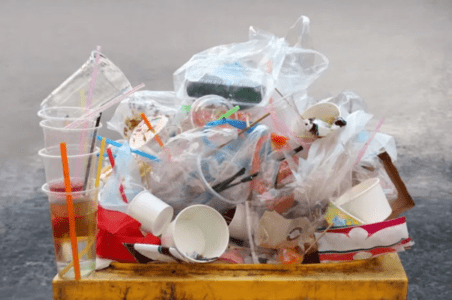COVID19 and The Plastic Pandemic are Lurking
Responding to the health crisis has increased plastic consumption and waste in many areas far beyond medical care, putting pressure on the environmentally sound management, treatment and disposal of this waste. Due to the risk of recycling workers being infected with the virus, some municipalities have temporarily suspended individual collection and sorting and sent more waste to incinerators or landfills. As the COVID19 pandemic continues to spread at varying rates around the world, the crisis poses unique short-term and long-term challenges for waste management, recycling and the transition to a circular economy. Health concerns first came to people`s minds, and with concerns that the virus was attached to reusable bags, cups and straws, the pandemic triggered a resurgence of disposable plastics.

For example, in the United States, the Governor of New York, the Governor of Maine, and the Governor of California have temporarily lifted or postponed the proposed ban on plastic bags, and the British government has reduced the price of plastic bag for delivery for certain time to minimise the risk of contamination. Other agencies have gone further and temporarily banned or strongly recommended the use of reusable plastic bags (Massachusetts, Illinois, New Hampshire and so on).
Leading brands have also reduced their waste reduction initiatives during the pandemic. The science behind the transition to disposable plastics to reduce the spread of COVID19 is still very weak so far. Some studies warn that bacterial and microbial infections through reusable shopping bags may increase, but early studies showed that COVID19 was significantly more than cardboard, for example, on plastic surfaces for up to 3 days. Therefore, disposable plastic products can be carrier materials and their reusable alternatives, depending on the intended use.
However, common sense suggests that all precautions to reduce the spread of COVID 19 should be temporary, unless scientific evidence suggests something else. In a broader sense, COVID19 could revoke government and industry efforts to combat plastic pollution, resulting in delayed or slowing the transition to a sustainable lifestyle and a more cyclical economy. Even if precautions to promote disposable plastics are lifted shortly after the end of the crisis, they can have a lasting impact on consumer behaviour. Therefore, it is important to raise consumer awareness of the importance of reducing plastic production, consumption, and waste.
Reference
COVID-19 and the looming plastics pandemic


 by
by